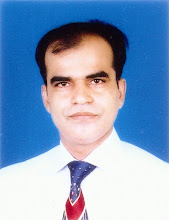The Hindu
Aug 27, 2008
While the coalition government led by the Pakistan People’s Party is unlikely to fall after the withdrawal of support by the Pakistan Muslim League (Nawaz Sharif), the hope that the former adversaries who joined hands to fight against the Musharraf dictatorship would work together in a sustained way to strengthen democratic institutions has collapsed.
This is not surprising given the track record of the two parties — and also their calculations about where their political interests lie at this juncture.
The PPP and PML(N) must be given credit for accomplishing the strategic objective of freeing Pakistan from the dictatorship. But they also set themselves the agenda of restoring the independence of the judiciary by reinstating all the sacked judges; diluting the powers of the presidency so as to strengthen parliamentary democracy; and working out modalities for choosing a new head of state by consensus.
The last item on the agenda has been abandoned. Although there is uncertainty over the implementation of the other two measures, it will be premature to conclude they will not be carried through.
The PPP failed to live up to the promise that it would press a parliamentary resolution calling for the restoration of the sacked judges within 24 hours of the exit of the dictator.
There are indications that the judges will be restored to their posts in phases before and after the presidential election scheduled for September 6.
The main problem seems to be PPP co-chairman Asif Ali Zardari’s concern that Iftikhar Chaudhary, reinstated as Chief Justice, might allow the re-opening of corruption cases against politicians.
The main problem seems to be PPP co-chairman Asif Ali Zardari’s concern that Iftikhar Chaudhary, reinstated as Chief Justice, might allow the re-opening of corruption cases against politicians.
The widespread belief in Pakistan is that Mr. Zardari wants to secure himself against prosecution by acquiring presidential immunity before an unpredictable Mr. Chaudhary is back in his post. The PPP leader has declared that if he becomes President, he will function as the head of state in a parliamentary democracy. This can be taken seriously as a statement of intent but there will still be need for a constitutional amendment so that there is no scope for temptation in future. To go by the composition of the electoral college, which comprises members of the federal and provincial legislatures, Mr. Zardari should fancy his chances of winning the presidential election. With the support of smaller allies, the PPP should also be able to hold on to power at the centre. Nawaz Sharif has indicated that his party will offer ‘constructive opposition.’
There is little question that his resoluteness bordering on aggressiveness on key institutional issues has placed him in a powerful political position.






